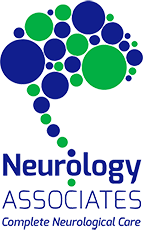How the Best Neurologist in Leesburg, VA can Help You Engage More with Patients with Alzheimer’s Disease
This article first appeared in May 2018 and was updated August 2023
Trying to communicate with a loved one and/or patients with Alzheimer’s disease is hard, both for the patient and the caregiver. Communicating progressively worsens as the patient’s condition advances. Care should be given in talking with these types of patients and strategies must be adopted according to the degree in the decline of the patient’s health.
Looking for a neurologist in Leesburg, VA who can understand your loved one’s needs can be a challenge. Alzheimer’s disease can cause many changes in the brain’s physiology, which may cause difficulties in communicating. Throughout the progression of the disease, you should expect to encounter the following problems:
➪Forgetting the names of common objects.
➪Repeatedly using common words.
➪Losing a train of thought.
➪Using gestures more frequently and speaking less often.
➪Difficulty in trying to remain logical.
Understanding the disease and what it does to the mind at every stage is a great help. Read on and understand this crippling degenerative disease.
Early Stage
 At the onset of the disease, consulting specialists like Neurology Associates, should be your first move. Seeking professional help immediately can prevent bad situations from getting worse. Loved ones should be supportive of the patient who at times might be overwhelmed with his or her environment, may repeat things, and find difficulty in conversing and finding the right word. Loved ones should care to remember the following:
At the onset of the disease, consulting specialists like Neurology Associates, should be your first move. Seeking professional help immediately can prevent bad situations from getting worse. Loved ones should be supportive of the patient who at times might be overwhelmed with his or her environment, may repeat things, and find difficulty in conversing and finding the right word. Loved ones should care to remember the following:
➪Don’t generalize and make assumptions. The disease affects each person differently.
➪Talk with them by whatever means they are most comfortable with. It could be online, through the phone, or face to face.
➪Be honest with what you feel. Use humor to lighten the mood and make it more comfortable for them.
➪Take time to listen.
Middle Stage
Also known as moderate Alzheimer’s, this stage can last for years, and the patients will experience greater difficulty communicating. Achieve a successful communication by following these tips:
➪Give the patient time to think of his or her response. And when he or she does, maintain eye contact. Show that you care deeply about what is being said.
➪Talk with them in a quiet place free of distractions. This will greatly help them understand what’s going on.
➪Don’t overwhelm them with questions or requests. It will help if you ask them in a step-by-step manner. Don’t argue with them. Let them be.
Late Stage
Called severe Alzheimer’s, 24-hour care should be provided to patients in the late stage of the disease. Expect that the patient will communicate with nonverbal means more than ever. This stage can last from several weeks to several years. To communicate successfully, follow these tips:
➪If you don’t understand what they are saying, encourage them to gesture. Use other senses like touch, sight, sound, smell, and taste to communicate with them. ➪Always approach them from the front and introduce yourself.
➪Treat them with dignity and respect. Never talk down to them.
➪In case you still do not understand what they are saying, take comfort in the fact that your care, presence, and love are enough.
Looking for a Neurologist in Leesburg, VA?
Caring for persons who have Alzheimer’s disease can take a huge emotional toll on a person. Specialists in Lansdowne Virginia, like Neurology Associates, provide all-around care for these patients. Let us take care of your loved ones. For more information, please check our Patient Education page.
Alzheimer’s Disease Resources:






